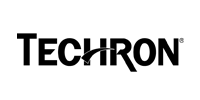Fleet Management industry going up the ranks in the Middle East


The verdict is out. While the global fleet management market is predicted to earn $36.63 billion by 2022 recording a CAGR of 24.5% from 2016 to 2022, the MEA, arguably one of the most overlooked automotive and fleet management regions in the world is poised for a tremendous upsurge. The transformations in these markets are revelatory of the untapped resilience and fleet-mature behavior of the leading markets in both Africa and the Middle East. There are several reasons for these changes. Among them is the steady rise in the demand for vehicle monitoring in the region. Then, there is the advent of smart technology that has made it more efficient. Incorporating smart fleet management solutions in the region has made headway in helping to cut costs, offer better services and reduce risks regarding vehicles.
To understand how the fleet management industry has been steadily gaining traction in the Middle East, it is necessary to understand this market. Today, the Middle East Smart Fleet Management Market has clear-cut segments: transportation, hardware, connectivity, solution and geography. In the hardware segment, the market for smart fleet management is categorized into tracking optimization, ADAS, and remote diagnostics. Among these classifications, the ADAs or advanced driver assistance systems hold the lion’s share of the market. The underlying goal of an ADAS system is vehicle maintenance and safety by automating and bolstering vehicle safety by making drivers aware of issues, helping to prevent collisions, and streamlining daily vehicle operations.
In connectivity, the short-range communication system is the most substantial segment in the Middle East market. The surge in traffic growth and the demand for monitoring shorter distances to regulate traffic jams has led the short-range segment to hold the largest market share, followed by the long-range segment.
In line with the Smart Dubai 2021, the city has transformed itself into a place where all its resources are enhanced for maximum efficiency, where services are integrated effortlessly into daily life, where both people and information are safeguarded — creating the most enriched life and business experience possible for all. It is this thinking that was embodied by the Roads and Transport Authority of Dubai (RTA) when it implemented an all-inclusive plan to have a unified modern control center to manage the city’s transportation. Besides managing these local fleets and other road users this system also offers several benefits. Reduction in accidents, mileage, maintenance costs, and fuel consumption leading to decreased carbon emissions are among the proven advantages of a fleet management system. For businesses related to smart fleet management solutions and fleet maintenance in the region, this marks a turning point. It is these effective fleet management steps and fleet management solutions that have helped the region to register immense growth in the last few years.
The enormous investment made by car manufacturers, quick infrastructural development, and economic growth to boost the usage of electric cars have also helped to augment the overall market growth in the Middle East for fleet management service and fleet maintenance. The UAE, in particular, has a strong fleet segment because of the efforts of the public sector and the presence of multinational companies. The fleet management industry in the Middle East has also benefitted from the country’s strong banking and financial system that is well-equipped to support a rich ecosystem of leasing companies offering operational leasing and short- and medium-term rental companies and independent lessors. In fact, Dubai is often used as a financial hub for financing lease operations throughout other Middle Eastern companies.
The fleet management industry in the Middle East owes its rise to several factors, including innovative government policies and the integration of smart solutions. However, what it purports to do in the long run is to increase awareness of the benefits of fleet management, which is often a neglected business activity that can have a significant impact on the bottom line for companies based locally and regionally.





























